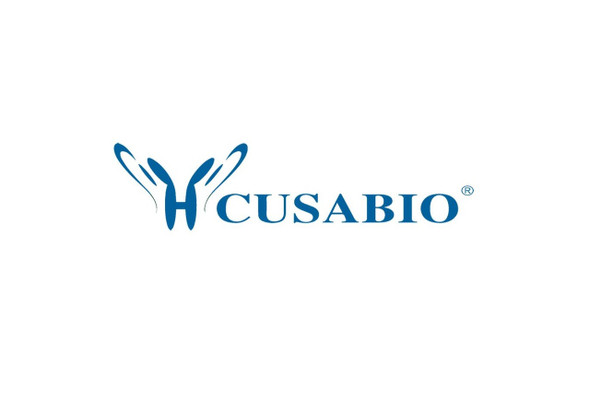Cusabio Human Recombinants
Recombinant Human E3 ubiquitin-protein ligase MYLIP (MYLIP) | CSB-YP855506HU
- SKU:
- CSB-YP855506HU
- Availability:
- 25 - 35 Working Days
Description
Recombinant Human E3 ubiquitin-protein ligase MYLIP (MYLIP) | CSB-YP855506HU | Cusabio
Alternative Name(s): Inducible degrader of the LDL-receptor ;IdolMyosin regulatory light chain interacting protein ;MIR
Gene Names: MYLIP
Research Areas: Epigenetics and Nuclear Signaling
Organism: Homo sapiens (Human)
AA Sequence: MLCYVTRPDAVLMEVEVEAKANGEDCLNQVCRRLGIIEVDYFGLQFTGSKGESLWLNLRNRISQQMDGLAPYRLKLRVKFFVEPHLILQEQTRHIFFLHIKEALLAGHLLCSPEQAVELSALLAQTKFGDYNQNTAKYNYEELCAKELSSATLNSIVAKHKELEGTSQASAEYQVLQIVSAMENYGIEWHSVRDSEGQKLLIGVGPEGISICKDDFSPINRIAYPVVQMATQSGKNVYLTVTKESGNSIVLLFKMISTRAASGLYRAITETHAFYRCDTVTSAVMMQYSRDLKGHLASLFLNENINLGKKYVFDIKRTSKEVYDHARRALYNAGVVDLVSRNNQSPSHSPLKSSESSMNCSSCEGLSCQQTRVLQEKLRKLKEAMLCMVCCEEEINSTFCPCGHTVCCESCAAQLQSCPVCRSRVEHVQHVYLPTHTSLLNLTVI
Source: Yeast
Tag Info: N-terminal 6xHis-tagged
Expression Region: 1-445aa
Sequence Info: Full Length
MW: 51.9 kDa
Purity: Greater than 90% as determined by SDS-PAGE.
Relevance: E3 ubiquitin-protein ligase that mediates ubiquitination and subsequent proteasomal degradation of myosin regulatory light chain (MRLC), LDLR, VLDLR and LRP8. Activity depends on E2 enzymes of the UBE2D family. Proteasomal degradation of MRLC leads to inhibit neurite outgrowth in presence of NGF by counteracting the stabilization of MRLC by saposin-like protein (CNPY2/MSAP) and reducing CNPY2-stimulated neurite outgrowth. Acts as a sterol-dependent inhibitor of cellular cholesterol uptake by mediating ubiquitination and subsequent degradation of LDLR.
Reference: MIR is a novel ERM-like protein that interacts with myosin regulatory light chain and inhibits neurite outgrowth.Olsson P.-A., Korhonen L., Mercer E.A., Lindholm D.J. Biol. Chem. 274:36288-36292(1999)
Storage: The shelf life is related to many factors, storage state, buffer ingredients, storage temperature and the stability of the protein itself. Generally, the shelf life of liquid form is 6 months at -20?/-80?. The shelf life of lyophilized form is 12 months at -20?/-80?.
Notes: Repeated freezing and thawing is not recommended. Store working aliquots at 4? for up to one week.
Function: E3 ubiquitin-protein ligase that mediates ubiquitination and subsequent proteasomal degradation of myosin regulatory light chain (MRLC), LDLR, VLDLR and LRP8. Activity depends on E2 enzymes of the UBE2D family. Proteasomal degradation of MRLC leads to inhibit neurite outgrowth in presence of NGF by counteracting the stabilization of MRLC by saposin-like protein (CNPY2/MSAP) and reducing CNPY2-stimulated neurite outgrowth. Acts as a sterol-dependent inhibitor of cellular cholesterol uptake by mediating ubiquitination and subsequent degradation of LDLR.
Involvement in disease:
Subcellular Location: Cytoplasm, Cell membrane, Peripheral membrane protein
Protein Families:
Tissue Specificity: Ubiquitously expressed.
Paythway: Cholesterolmetabolism
Form: Liquid or Lyophilized powder
Buffer: If the delivery form is liquid, the default storage buffer is Tris/PBS-based buffer, 5%-50% glycerol. If the delivery form is lyophilized powder, the buffer before lyophilization is Tris/PBS-based buffer, 6% Trehalose, pH 8.0.
Reconstitution: We recommend that this vial be briefly centrifuged prior to opening to bring the contents to the bottom. Please reconstitute protein in deionized sterile water to a concentration of 0.1-1.0 mg/mL.We recommend to add 5-50% of glycerol (final concentration) and aliquot for long-term storage at -20?/-80?. Our default final concentration of glycerol is 50%. Customers could use it as reference.
Uniprot ID: Q8WY64
HGNC Database Link: HGNC
UniGene Database Link: UniGene
KEGG Database Link: KEGG
STRING Database Link: STRING
OMIM Database Link: OMIM









